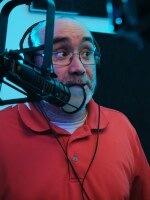A Nemours neurologist receives a grant to study brain patterns that could lead to shared therapies for three different ailments.
Dr. Rodney Scott received the National Institutes of Health Director’s Transformative Research Award.
The five-year grant worth $2.6 million will fund his investigation of malfunctions in the brain looking to identify patterns that could lead to shared therapies for autism, epilepsy and Alzheimer’s disease.
Scott’s project is focused on patterns of dysfunction in the region of the brain that regulates memory and emotions.
The funding is specifically for high-risk, high-reward projects, and Scott explains why this project applies.
"It's high-risk because it might not work. It's an idea, it's a hypothesis that we're going to be testing,” said Scott. “The high-reward is that there are a lot of people that have learning and memory impairments across a lot of diseases which, despite years of investment into projects that are trying to treat the underlying causes, we haven't made enormous amounts of progress. So, if this works then the high-reward is a completely different way of treating people."
The project is based on the theory that autism, epilepsy and Alzheimer’s may share the same faulty mechanism, a disruption in the brain’s neural networks.
Scott notes if the research finds shared abnormal brain activity patterns, they will develop methods of brain stimulation that could restore healthy function across a range of disorders.
"The goal of the project that was funded is to try and find similar convergent abnormalities in brain networks that exist across a whole range of neurological disorders in a way that will allow us to intervene with brain stimulation strategies to try and improve learning and memory outcomes," said Scott.
The research could not only improve cognitive function, but also quality of life for patients with a broad range of neurological conditions to people of all ages.




